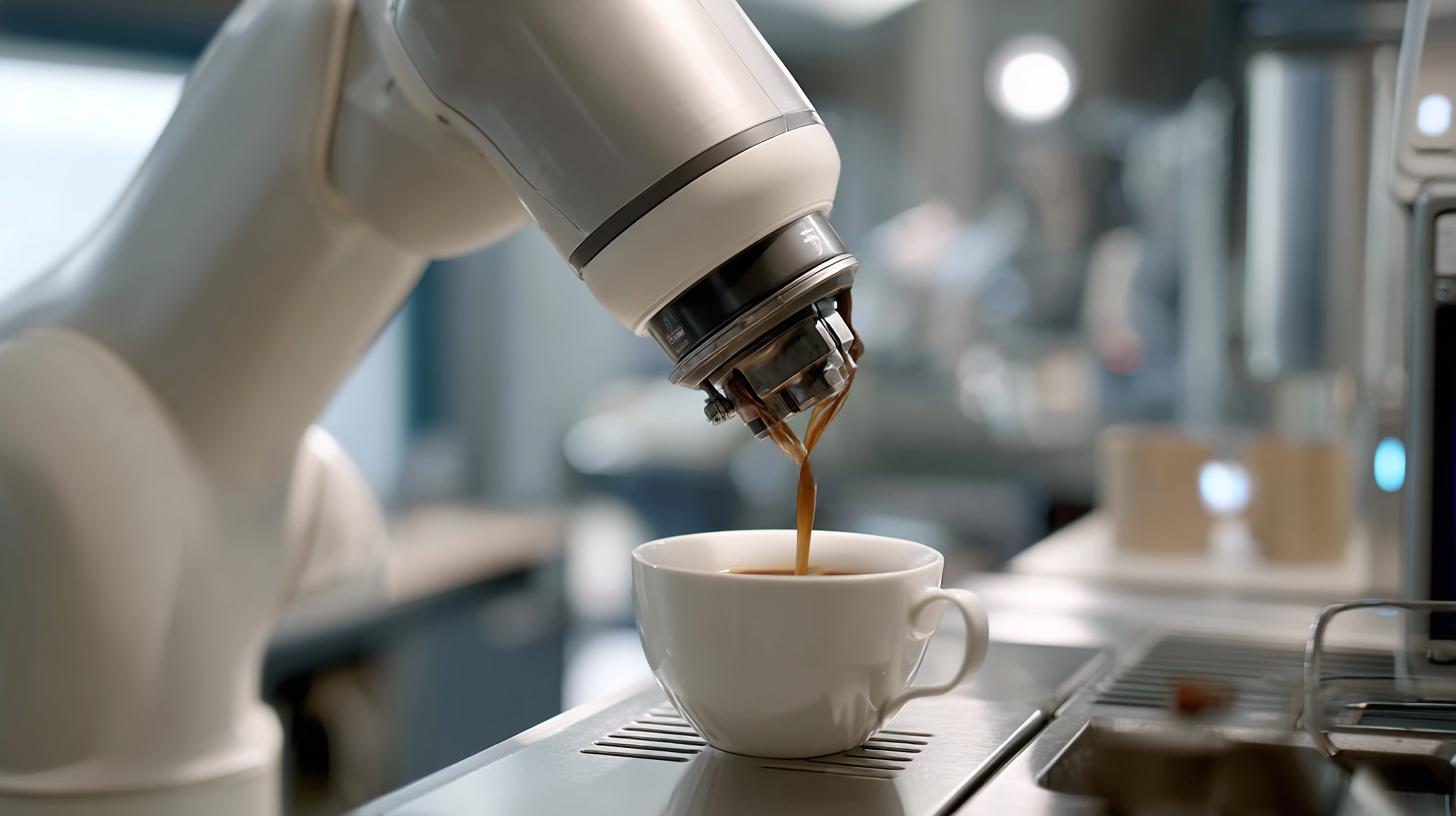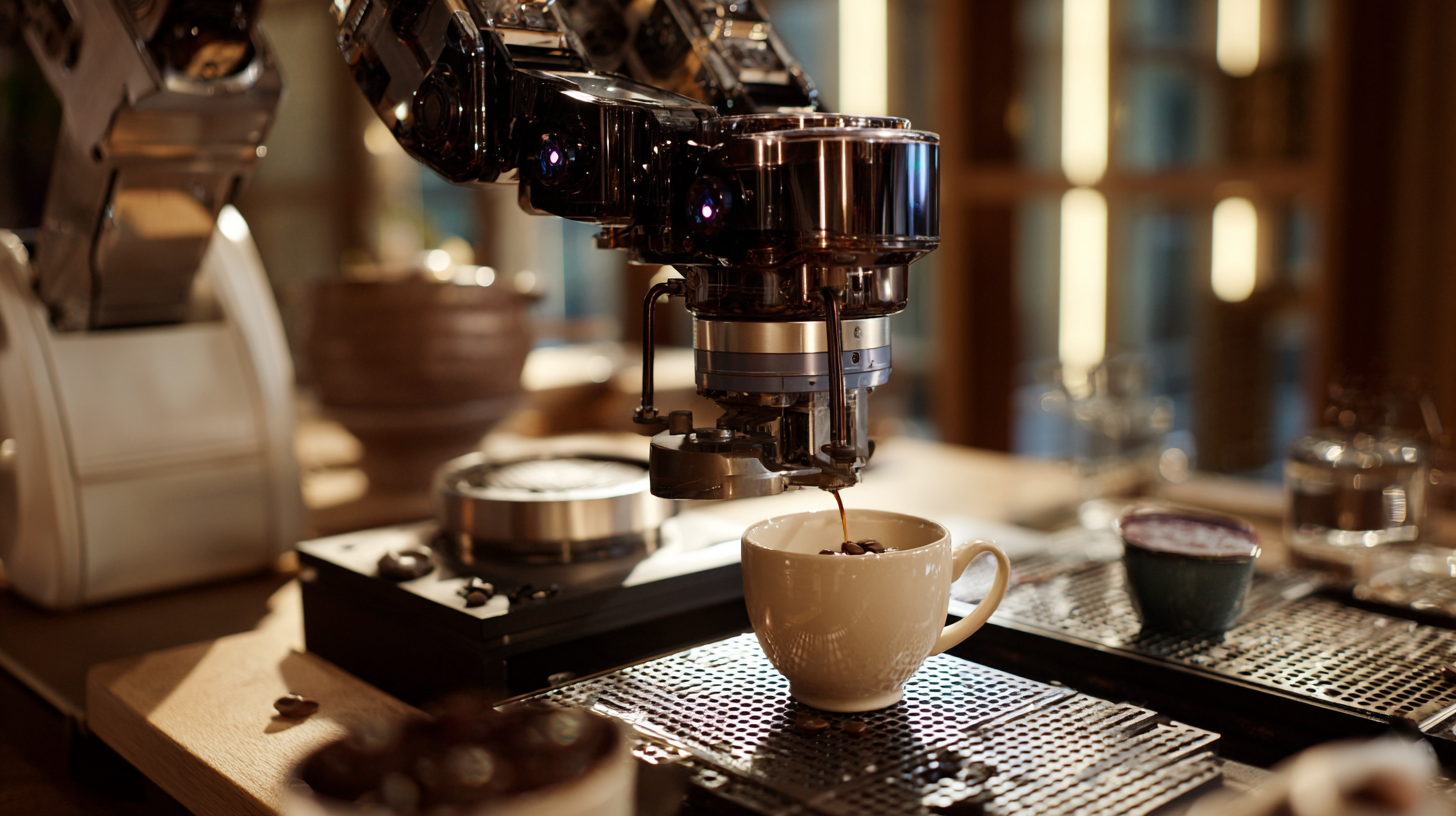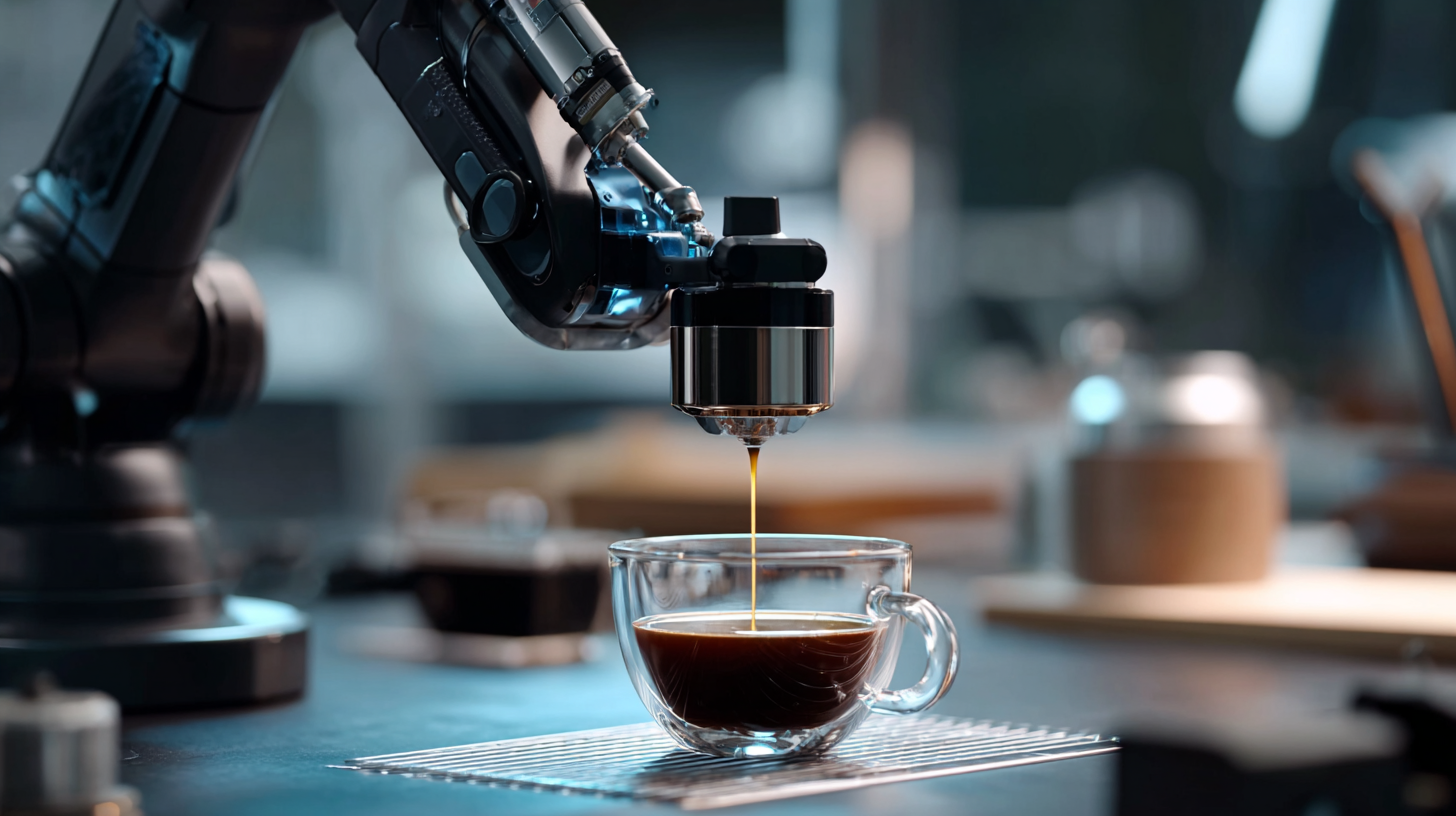Brewing Innovation: How Coffee Robots are Transforming the Coffee Industry with AI and Automation
In recent years, the coffee industry has experienced a remarkable transformation driven by technological advancements, particularly through the introduction of Coffee Robots. These innovative machines are redefining the way coffee is brewed, enhancing efficiency, consistency, and precision in every cup. As consumers’ demands for higher quality and unique coffee experiences grow, the integration of artificial intelligence and automation into coffee preparation has swiftly become a game changer, enabling businesses to adapt to the changing market landscape.
Coffee Robots utilize cutting-edge algorithms and automation techniques to streamline various processes, from grinding and brewing to packaging. By minimizing human error and maximizing flavor extraction, these robots not only uplift the quality of the coffee served but also reduce the time and labor involved in traditional brewing methods. This technological shift grants cafes and roasteries the ability to cater to a broader audience, offering personalized coffee options while maintaining exceptional standards.
As we explore the evolving role of Coffee Robots in the industry, it becomes evident that the fusion of creativity and technology is brewing a new wave of innovation. With environmental sustainability and labor shortages influencing operational strategies, the coffee sector is increasingly turning to these automated solutions to stay competitive and meet the expectations of the modern coffee enthusiast.

How to Leverage AI for Precision Brewing in Coffee Production
The coffee industry is witnessing a significant transformation driven by AI and automation. According to a report from PwC, the global coffee market is projected to reach $30 billion by 2025, coinciding with technological advancements in brewing processes. Leveraging AI for precision brewing not only enhances flavor profiles but also optimizes operational efficiency in coffee production. By utilizing machine learning algorithms, coffee producers can analyze vast amounts of data, such as bean quality and brewing conditions, to refine their processes and ensure consistency.
One of the key innovations in precision brewing is the integration of automated brewing systems that rely on advanced sensors and data analytics. A study from the Specialty Coffee Association indicates that these systems can improve brewing accuracy by up to 20%, resulting in a superior product and reduced waste. For instance, automated pour-over devices utilize AI to adjust variables like water temperature and flow rate, ensuring each cup of coffee is brewed to perfection. As stakeholders increasingly adopt such technologies, the coffee industry is on track to not only meet consumer demands for high-quality beverages but also to drive sustainable practices through improved resource utilization.
Brewing Innovation: How Coffee Robots are Transforming the Coffee Industry with AI and Automation
| Dimension | Description | Impact |
|---|---|---|
| Automated Brewing | Use of robots to brew coffee with precision. | Increased consistency and reduced labor costs. |
| AI-based Flavor Profiling | Analyzing bean characteristics to optimize flavor. | Enhanced product quality and customer satisfaction. |
| Data Analytics for Harvesting | Using data to determine optimal harvesting times. | Maximized yield and minimized waste. |
| Robotic Quality Control | Robots inspecting bean quality in real-time. | Reduction in defective products and improved standards. |
| Interactive Customer Experience | Robots offering personalized coffee recommendations. | Increased customer engagement and loyalty. |
Ways to Implement Automation for Consistent Coffee Quality
The integration of automation in the coffee industry is a game changer, particularly in ensuring consistent quality across various products. A recent study by the Specialty Coffee Association indicates that automation can reduce variability in coffee brewing by up to 30%. This is largely achieved through precision machines that control variables such as water temperature, extraction time, and grind size. As a result, coffee shops can replicate high-quality brews consistently, leading to greater customer satisfaction and loyalty.
Moreover, the financial implications of implementing automation are significant. According to a report from IBISWorld, coffee shops that adopt automated brewing technology report a 15% reduction in labor costs while maintaining or enhancing product quality. By minimizing human error and standardizing brewing processes, baristas can focus more on customer engagement and less on the technical aspects of brewing. Thus, the move towards coffee robots and AI-driven machines not only streamlines operations but also elevates the overall coffee experience for consumers.
How to Optimize Supply Chains with Robotics in Coffee Industry
The integration of robotics and AI in the coffee industry is revolutionizing supply chain efficiency. According to a report by Allied Market Research, the global coffee market is expected to reach $102.02 billion by 2028, with a significant portion of this growth driven by advancements in automation. Robotic systems can streamline everything from harvesting to packaging, significantly reducing the time and labor required. For instance, robotic coffee pickers can operate 24/7, improving harvest efficiency by up to 30% compared to manual labor.
Additionally, automation in logistics is transforming how coffee is distributed worldwide. A study from McKinsey & Company highlighted that optimizing supply chain processes through automation can reduce operational costs by up to 25%. This is particularly essential in a market where timely delivery affects freshness and quality, impacting consumer satisfaction. By leveraging robotic solutions for inventory management and transportation, companies can minimize delays and optimize stock levels, ensuring that high-quality coffee reaches consumers faster than ever before. The future of the coffee industry is not just about brewing; it's also about how we manage the journey from farm to cup with cutting-edge technology.
Techniques for Enhancing Customer Experience through Coffee Robots
The integration of coffee robots into the brewing process is one of the most exciting advancements in the coffee industry, particularly in enhancing customer experience. These automated systems are designed to create a seamless interaction between the customer and the coffee-making process. With the ability to customize orders based on individual preferences, coffee robots can provide a unique and personalized experience. For instance, customers can specify their ideal temperature, milk froth level, and flavor intensity through user-friendly interfaces, making each cup of coffee uniquely tailored to their taste.
Moreover, coffee robots significantly reduce wait times, allowing for a more efficient service environment. By automating the brewing process, these machines can prepare beverages in a fraction of the time it takes a human barista. This efficiency not only satisfies impatient customers but also enables café owners to serve more patrons, ultimately increasing sales. Additionally, the consistent quality achieved by coffee robots ensures that every cup meets customer expectations, fostering loyalty and repeat business. As the technology evolves, the potential for further enhancing customer interactions through innovations in AI and automation remains expansive, signaling a bright future for coffee lovers.

How to Train Staff to Work Effectively with Coffee Automation Systems
The integration of AI and automation into the coffee industry is evolving rapidly, but training staff to work effectively with these systems is crucial. As research shows, while AI can make workers faster, it doesn't always enhance productivity. Employees may rush through tasks only to take longer breaks, revealing the need for a balance between speed and efficiency. To truly benefit from automation in coffee preparation, coffee shops must invest in training programs that help staff understand how to collaborate with machines rather than compete against them. Emphasizing the importance of human expertise alongside technology can lead to a more harmonious workflow.
Moreover, as the specialty coffee industry shifts focus from craftsmanship to consistency, maintaining high customer service standards remains paramount. Experts argue that the most successful coffee businesses will be those that intentionally integrate technology to enhance, rather than replace, the human element. According to recent industry reports, customer experience still drives brand loyalty in specialty coffee, highlighting that automation should complement—not overshadow—the personal touch that defines quality service. Training staff to navigate this balance is essential for fostering an environment where both automation and barista skill can thrive together.

